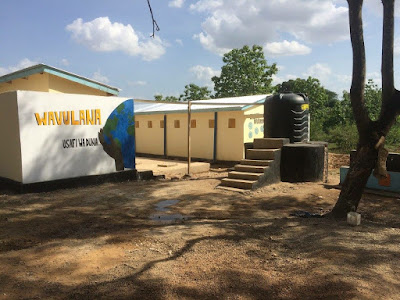WATER USES IN AFRICA
Water resources have many different purposes. Taylor (2004) identifies 3 main uses in Africa:
Domestic uses- 13% of total use
- This includes household needs such as drinking, cooking, washing, as well as municipal and commercial activities.
- However rapid urbanisation due to population growth and rural- urban population, has meant that many urban and piped supplies have been overwhelmed, especially in East and Southern Africa.
Agricultural uses- 83% of total use
- This refers to both irrigation and cropland and watering of livestock.
- Due to strong seasonality in river flow, particularly at high latitudes in Southern Africa, large dams are often constructed to store peak flows during the dry season.
- Agricultural uses make up a staggering 83% of total water use. This is both commercial and traditional/ communal.
Industrial uses- 4% of total use
- In East and Southern Africa this is dominated by the mining industry. This is reflected in the proportion of water used for industry (>10%) by countries such as Botswana, Democratic republic of Congo, Angola, and South Africa.
- Large increases are expected in HEP generation in Southern Africa due to both rising demand and the high potential for HEP generation.
Climate change
Climate Change has the potential to impose additional pressures on water availability and demand in Africa, many of which they are already currently facing. Water Supply Security, Food security and Energy security are at increasing risk, with growing demands due to population growth and urbanisation. Climate change is set to rapidly increase the magnitude of these problems.
Below is a summary of the projected impacts of climate change in Africa:
Figure 1: Summery of the projected impacts of climate change in Africa, taken from the Report Summary for Policy Makers, IPCC, 2007
Next week's blog will focus on East Africa, providing a broad overview of the region. The following week will then look at the production of maize, focusing in on Tanzania.





Hi Rhona, very informative post about the various water uses in Africa. You've shown how agricultural uses are far beyond any other water uses, what is your opinion on large scale irrigation as a possibly more sustainable use of this water?
ReplyDeleteHi Jeannie thanks for your comment. My post this week has been on the potential for both small scale and large scale irrigation in Kenya. A study showed that there is potetial for large scale irrigation seeing many of the dams being economically feasible for development. heres the study:http://www.sciencedirect.com.libproxy.ucl.ac.uk/science/article/pii/S0306919214000712
DeleteHowever there is a problem that many of the of the large scale irrigation schemes have failed due to poor governmental management. Also due to climate change there is a higher potential for evaporation in some areas.